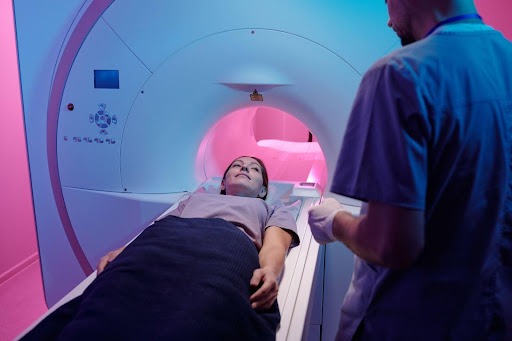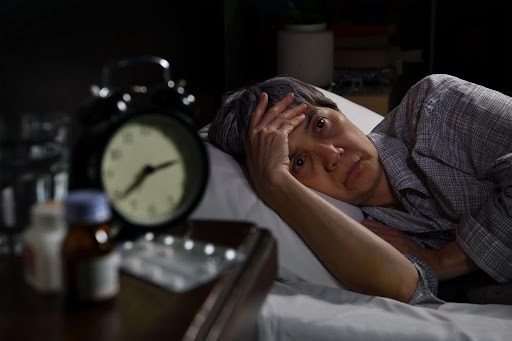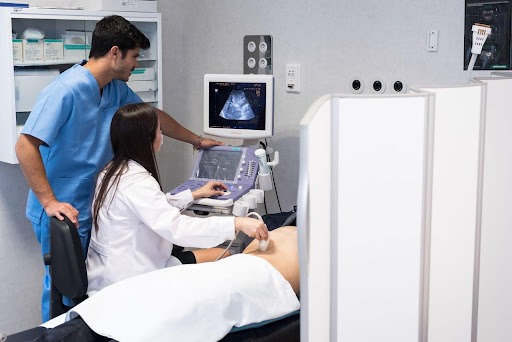Understanding Premature and Early Menopause: Causes, Symptoms, and Management
Coping with Premature and Early Menopause: A Guide
Menopause is a spontaneous process in women’s lives that marks the termination of childbearing age along with the invitation of various bothersome symptoms called menopausal symptoms. Typically, menopause occurs between 50 and 55 years of age; however, some women experience it much earlier, i.e., before the age of 40 to 45. This condition is called premature or early menopause, affecting 1% to 9% of women with profound physical health implications, emotional well-being, and overall quality of life. Let’s explore the causes of early menopause, the symptoms, the health risks, and management strategies.
Are you confused between Premature and Early Menopause?
Although both terms indicate similar pathophysiology and related symptoms, their commencement is slightly different.
- If she stops menstruating before age 40, it is known as premature menopause, characterized by cessation of ovarian function and low levels of estrogen and other hormones. In most cases, it is induced as a result of some medical interventions, genetic factors, and autoimmune disorders.
- If she is experiencing menopause between 40 and 45 years of age, it is considered early menopause and is mostly spontaneous. It follows the same hormonal and physiological processes as natural menopause but occurs earlier than the average age range. Reasons for early menopause can vary from genetic predispositions to environmental factors and lifestyle choices.
What causes Premature Menopause?
The onset of premature menopause can be attributed to a variety of factors, including genetic, medical, and environmental conditions, food habits, and lifestyle. Let’s understand them step by step:
1. Genetic Factors
A familial history of premature menopause significantly increases its likelihood. Certain genetic factors, like mutations and chromosomal abnormalities such as fragile X syndrome, may predispose women to premature menopause.
2. Medical Interventions
If a woman is exposed to higher levels of certain radiation during medical treatments, there are chances of getting the ovaries damaged, leading to permanent ovarian failure.

3. Environmental Factors
Exposure to carcinogenic and mutagenic chemicals in cosmetic products, pesticides, solvents, and smoke daily adversely affects ovarian health and shifts normal menopause to premature.
4. Lifestyle and Food Habits
- Smoking is one of the most significant lifestyle factors associated with premature menopause. The toxins in cigarettes, including nicotine and carbon monoxide, directly harm ovarian health and accelerate the depletion of ovarian follicles. Not just this, smoking also increases oxidative stress in the body, which can damage the ovarian cells.
- Excessive stress levels disrupt the hypothalamic-pituitary-ovarian axis and induce hormonal imbalance, which may precipitate ovarian failure and cause premature menopause.
- Inadequate and unhealthy diet choices, such as poor, lipid-rich diet, lack of nutrients, vitamins, and antioxidants, alcohol consumption, and a lack of exercise, exacerbate the risk. The trendy street foods these days, mostly liked by women, are loaded with saturated fats and sugars that ruthlessly affect ovarian health.
- A higher body mass index (BMI) at the ages of 25 to 40 adversely affects ovarian health.
5. Autoimmune Disorders
Addison’s disease, thyroid, rheumatic arthritis, diabetes, and obesity can lead to premature menopause.
6. Age at Menarche
Menarche is the onset of the first menstrual period and marks the beginning of reproductive age. The age at menarche is directly associated with the timing of menopause; early menarche leads to early menopause. The early onset of puberty, coupled with a changed lifestyle, an inadequate healthy diet, and environmental factors, leads to premature menopause.
Symptoms of Premature Menopause
The symptoms of premature menopause are similar to those of natural menopause, with a difference in severity and abrupt onset. Following are the symptoms a woman can experience:
1. Irregular Menstrual Cycle
The first and foremost symptom of premature menopause is a lot of unpredictability, including the date and flow of periods.
2. Hot Flushes and Night Sweats
A sudden feeling of intense heat, mostly in the face, neck, and chest regions, is often accompanied by skin redness followed by profuse sweating. Hypertension, hot weather, trigger foods, caffeine, smoking, or alcohol may trigger it.
3. Mood Swings
A roller-coaster fluctuation of hormones leads to emotional changes, irritability, depression, and anxiety.
4. Cognitive Dysfunction
Some women also experience memory loss, confusion, and difficulty concentrating, often called brain fog.
5. Sleeplessness
Because of the sudden hot flashes, sweats, and mood disturbances, insomnia or poor sleep quality arises. It is also linked to low levels of estrogen and serotonin in the body.

6. Vaginal Atrophy
It is the thinning, drying, and inflammation of the vaginal walls attributed to the early slumping of hormones in premature menopause.
7. Decreased Libido and Painful Intercourse
Reduced sex desire due to painful intercourse and hormonal fluctuation is a common complaint among women undergoing premature menopause.
8. Stiff Joints
Premature menopause contributes to the pain, inflammation, and stiffness of the knee, hands, and hip joints. It may exacerbate the development of osteoarthritis.
9. Pruritus (Itching)
Estrogen deficiency leads to dryness in the skin and causes persistent itching, often worsening in areas like the arms, face, and legs.

10. Dry Skin, Eyes, and Mouth
Some women also have complaints of dryness in their skin as estrogen deficiency reduces the production of natural oils, leading to dry and flaky skin. Moreover, dryness in the mouth and eyes is also a common symptom among premature menopause-stricken women leading to potential issues in oral and vision health respectively.
11. Weight Gain
Abrupt hormonal changes can lead to weight gain, particularly around the abdomen.
12. Cardiovascular Health
Estrogen has a protective effect on cardiovascular health and its loss gives rise to cardiac disorders and stroke.
Premature Menopause-associated Health Risks
Women experiencing premature menopause spend a considerably longer segment of their lifespan confronting the concomitant persistent and severe symptoms. It is noteworthy that medically induced premature menopause often manifests in a more severe and intense form compared to spontaneous occurrences. It impacts cardiovascular and bone health, and quality of life, and causes cognitive disorders, dementia, hypertension, psychological distress, and urogenital and metabolic changes.
Diagnosis of Premature Menopause
It involves a combination of medical history, physical examination, certain laboratory tests, and imaging.
- A medical practitioner may ask about thorough familial history to trace the genetic cause of premature menopause onset.
- Healthcare providers may go for a physical examination, including skin and eye dryness, pelvic region, breast, and joint stiffness.
- Tests like Ultrasonography to examine ovarian health.
- Blood samples may be taken to estimate hormone (estrogen, progesterone, LH, and FSH) levels. Elevated FSH and reduced estrogen levels are indicators of diminished ovarian functioning.

How do you manage Premature Menopause?
Although premature menopause is unidirectional or irreversible, several strategies can help cope with the symptoms:
1. Hormonal Replacement Therapy (HRT)
The administration of hormone(s) to the body that is no longer produced by the ovaries. It is recommended to alleviate the severe symptoms and reduce the risk of cardiovascular disorders and osteoporosis. It is worth considering to counter the cascade of niggling symptoms that can lead to improved concentration, emotional stability, and overall quality of life during midlife.
Read More: Is Hormone Replacement Therapy (HRT) Right for You?
2. Non-hormonal Therapy
Non-hormonal treatments, including selective serotonin reuptake inhibitors (SSRIs), gabapentin anti-depressants, and sleeping aid pills, are prescribed; however, they come up with various side effects.
3. Mind and Body Practices
Some practices, like acupuncture, massage, reflexology, and aromatherapy are also being taken by women to avoid the harmful effects of hormonal and non-hormonal therapies.
4. Healthy and Nutritious Diet
A balanced diet rich in nutrients, vitamins (especially vitamin D) and proteins supports bone health and healthy skin. Women must include cereals and fruits in their meals, as they are enriched with phytoestrogens that help alleviate the symptoms.
5. Regular Exercise
Incorporating weight-bearing and muscle strengthening exercises into your daily routine makes for stronger bones, a healthier heart, and an improved mood.
6. Quitting Smoking and Alcohol Consumption
For optimal ovarian health and to minimize oxidative stress in the body, women are encouraged to abstain from smoking and alcohol consumption.
7. Stress Management
Doing yoga and meditation practices helps reduce stress and anxiety, improves overall well-being, and brings positivity.
8. Joining Support Groups and Counseling
Connecting with peers through support groups brings a sense of belongingness, which acts as a mood enhancer. Counseling with professionals can also be beneficial in addressing the psychological challenges associated with premature menopause.
9. Regular Health Monitoring
It includes regular check-ups of bone density, heart health, metabolic and psychological changes, and their monitoring.
How is Premature Ovarian failure different from Premature Menopause?
Premature ovarian failure, or primary ovarian insufficiency, is the condition where ovaries lose their normal function, independent of age, and result in irregularity or interruption in periods. It does not always mean the complete cessation of ovarian function, i.e., women diagnosed with premature ovarian failure may still have periods and may also conceive in rare cases.

Final Takeaway
Premature menopause represents a complex web of challenges, originating from the early cessation of ovarian functioning and necessitating a holistic approach to counter the symptoms. Understanding the causes, symptoms, and associated health risks is pivotal to employing effective strategies to improve the overall well-being of affected women. With a combination of medical treatments, lifestyle modifications, and emotional support, women can circumvent the challenges of premature menopause.




